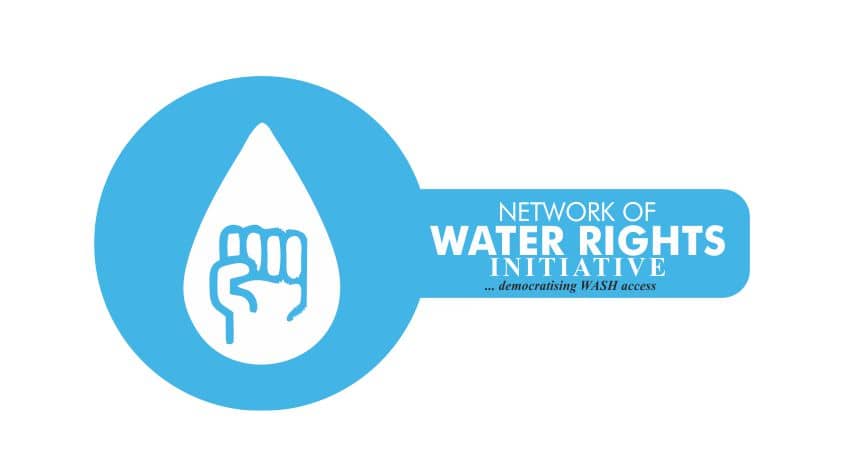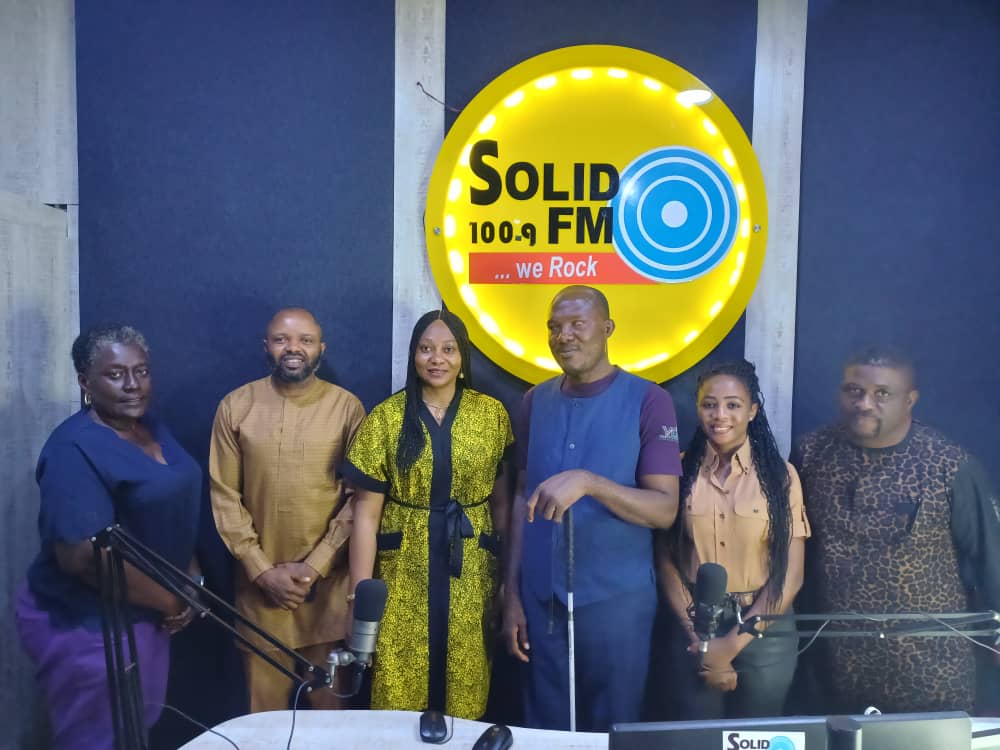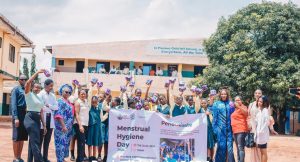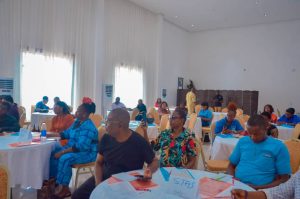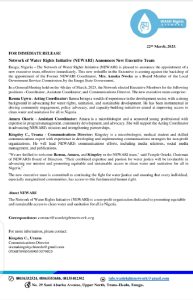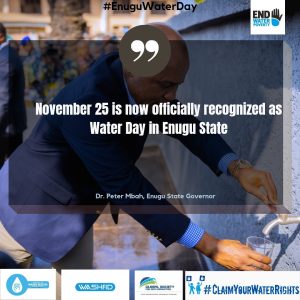As Enugu State embarks on the ambitious journey to eradicate the perennial water poverty and end open defecation, a critical question emerges: how can we ensure that every individual, regardless of socioeconomic status, geography, or ability, has access to these basic human rights? How do we ensure NO ONE IS LEFT BEHIND?
The 2021 Water, Sanitation and Hygiene National Outcome Routine Mapping Survey (WASHNORMS) highlights that only 0.4% of schools, 17% of healthcare facilities and 0.4% of public places have access to basic WASH services. Considering these worrisome statistics, it has become non-negotiable for the state government to strategically intervene to address the menace of WASH-in-Institutions and public spaces in Enugu State.
This has become even more cogent and imperative as the state government continues to embark on several infrastructural projects across the state, including the planned establishment of two hundred and sixty (260) Type II Primary Healthcare Facilities across the state. The government has also commenced the construction and establishment of two hundred and sixty (260) “Smart and Green Integrated School Campuses“, which accommodates pre-primary to junior secondary school children.
As the government embarks on these laudable projects, one key question resonates in the heart of many Enugu residents, especially persons with disability;
How inclusive are the #WASH facilities in these institutions?
The Managing Director of Enugu State Rural Water Supply and Sanitation Agency (ENRUWASSA) had stated during Episode 2 of the Enugu-WASH-Radio-Series that each of the “Smart Schools” being built by the state government has provisions for 22 in-built toilet facilities. However, there was no confirmation of the gender and inclusive nature of these toilet facilities, as well as the water supply and handwashing facilities, if available.
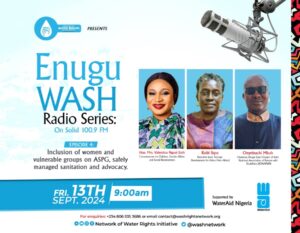
On this 4th epispde of the #EnuguWASHRadioSeries, the focus was on ‘inclusion of women and vulnerable groups in Enugu State WASH development interventions’. To share insights on this topic, the episode featured three highly resourceful Guests; 1) Hon. Mrs Valentina Ngozi Eneh, Commissioner for Children, Gender Affairs and Social Development (who was represented by Ms. Chetachi Okonkwoeze 2) Mr. Onyebuchi Mbah, the Chair Enugu State Chapter of Joint National Association of Persons with Disability and 3) Ms. Kobi Ikpo, the Executive Lead Teenage Development for Africa (Teen Africa)
The Guests shared their perspectives and real life experiences of challenges Persons with Disability (PWDs) face in accessing toilet facilities and other infrastructural facilities, such as banks and public transportation, across the state. While sharing his lived and relatable experiences on some of the most pressing challenges PWDs face in accessing safely managed sanitation services in the state, the Chair of Enugu Chapter of the Joint National Association of Persons with Disability stressed that most toilet facilities (including those in private and public infrastructures and institutions) were not built with the slightest consideration of persons using wheelchairs or clutches. He emphasized that the entrance doors and spaces within these facilities are not wide enough to enable access or accommodate persons using wheelchair while some are made with slippery flooring materials that makes it difficult for PWDs to safely use the toilet, unaided.
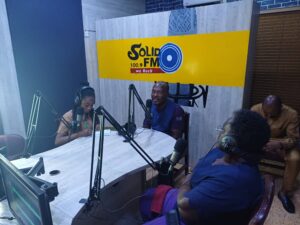
The Guests also shared insights on some of the policy changes or infrastructure improvements that are needed to ensure that all PWDs in Enugu State can access sanitation facilities safely and comfortably. One of such recommendations was the full implementation of the provisions of the “Law to Provide for Full Integration of Persons with Disability”, which was passed by the state in 2023. Ms. Kobi Ikpo cited that Part III Section 5 of the bill stated that PWDs has the right to access physical environment and building on an equal basis with others. She further stressed that the Africa Sanitation Policy Guideline (ASPG), which has provided specific and explicit guideline for inclusive sanitation services, should also be considered in drafting the revised Enugu WASH Policy that is currently ongoing.
In concluding the episode, the Government representative revealed that the discourse was an “eye-opener” that has further challenged the State Ministry of Children, Gender Affairs and Social Developmemt to intensify efforts in ensuring women, PWDs and vulnerable groups are included at the planning stages of any social development within the Ministry.
You can use the link to listen to the key takeaways from this episode.
Tune in to join the discourse next week: Radio Station: Solid 100.9FM Enugu; Time: 9AM (GMT+1
The #EnuguWASHRadioSeries is brought to you by the Network of Water Rights Initiative [NEWARI] with support from WaterAid Nigeria.
